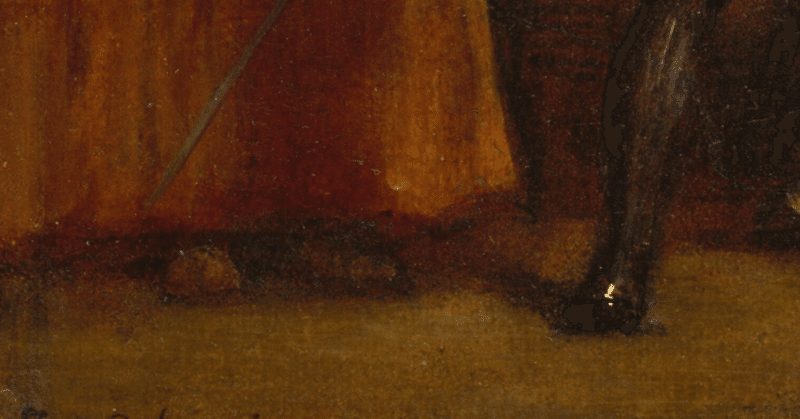
立命館大学・天畠大輔の論文オーサーシップに関する疑義(広義の研究不正にあたる可能性)
※ この疑義については既に関係機関に顕名で通報済みである。
※ 立命館は2022年10月3日、指摘の行為は「研究内容に関する疑義であり、学校法人立命館通報取扱規程が対象とする「違反行為」(同規程第2 条)のおそれがない」として、通報を不受理とした。しかし、ここで言う指摘の行為は「不適切なオーサーシップ」であり、これを「研究内容に関する疑義」とする判断は根拠が不明瞭である。
・当該論文
社会学評論 71 巻 (2020-2021) 3 号 投稿論文
「発話困難な重度身体障がい者」の論文執筆過程の実態――思考主体の切り分け難さと能力の普遍性をめぐる考察――
https://www.jstage.jst.go.jp/article/jsr/71/3/71_447/_article/-char/ja/
著者 天畠大輔
共著者 なし
疑義 不適切なオーサーシップ
関係機関 立命館大学
※ 備考:当該論文末尾の付記
「本稿は,立命館大学大学院先端総合学術研究科に提出した筆者の博士論文(天畠2019)の成果の一部を加筆修正したものである.また,科学研究費補助金(特別研究員奨励費)および生産性研究助成金の成果の一部となる.」
※ 備考:天畠大輔の博士論文
「発話困難な重度身体障がい者」の新たな自己決定概念について : 天畠大輔が「情報生産者」になる過程を通して
http://hdl.handle.net/10367/12296
※ 備考:天畠大輔の博士論文における審査委員
主査
立岩真也 (立命館大学大学院先端総合学術研究科教授)
副査
岸政彦 (立命館大学大学院先端総合学術研究科教授)
西成彦 (立命館大学大学院先端総合学術研究科教授)
福島智 (東京大学先端科学技術研究センター教授)
・推定される不適切行為
立命館大学、あるいはその指導教員が、天畠大輔に対してオーサーシップの扱いを適切に指導しなかった。
立命館大学 研究倫理ハンドブック http://www.ritsumei.ac.jp/research/approach/ethics/
上記ハンドブックにおける著者の定義
1-1. 立命館大学研究倫理指針
└ 2 研究者の責務および行動規範
└ (8) 研究成果の発信
4 研究者は、研究成果の発表にあたり、当該研究活動に実質的に関与し、研究内容・結果に責任を有する者を著者とする。
・疑義の論拠
論拠1
天畠大輔の指導教員に対してメールで天畠大輔にオーサーシップがあるかどうか質問したところ、返信はあったが教員は根拠を示すことができなかった。
論拠2
当該論文中で、天畠大輔の博士論文執筆に協力した「論文チーム」のメンバーが、天畠大輔のオーサーシップについて強く疑義を呈していたことが示されている。
19)また,論文チームの介助者のなかには筆者の論文執筆技法と「もの言う介助者」たちの介助手法を批判する者もいた.彼は一文字一文字介助者に読み取らせて論文を執筆すべきであると筆者に主張した.彼は介助者手足論の規範をもち,その規範からはみ出てしまう筆者には論文のオーサーシップはない,と筆者に迫った.自分の介助者から突きつけられたこの強い批判をきっかけに,筆者は強いジレンマに陥ることになった.(2016年12月28日介助者との会話を記録したフィールドノーツより)
太字は引用者による
※ なお「論文チーム」は共著者ではない。(博士論文が単著であるため)
論拠3
天畠大輔が論文執筆に使用した「あ、か、さ、た、な話法」は、「Facilitated Communication(FC)」と酷似している。「FC」は科学的根拠のない介助手法であり、そのオーサーシップは障害者本人でなく介助者にあることが過去に示されている。
参考:米国言語聴覚士協会 ASHAの「FC」に関する声明
https://www.asha.org/policy/ps2018-00352/
参考:天畠大輔の「あかさたな話法」の動画
https://youtu.be/h7chwXPwGJQ?t=170
以上。
Daisuke Tenbata (Japanese researcher): Inappropriate authorship
This suspicion has already been reported to the relevant organizations by me.
The questionable paper (Tenbata 2020) :
Publication magazine: Shakaigaku Hyoron 71(3): 447-65.
URI: https:// www.jstage.jst.go.jp/article/jsr/71/3/71_447/_article/-char/ja/
DOI: https://doi.org/10.4057/jsr.71.447
Author: Daisuke Tenbata
Qustion: Inappropriate authorship
Institution: Ritsumeikan University (Japan)
The note at the end of the paper says like thus:
This paper is a partial revision of his doctoral dissertation (Tenbata 2019) submitted to Graduate School of Core Ethics & Frontier Sciences, Ritsumeikan University.
The doctoral dissertation of Daisuke Tenbata (2019)
Title: "A New Concept of Self-Determination for People with Serious Physical and Speech Impairments: Based on the Process in which Daisuke Tenbata Becomes a Creative Subject who Produces Information"
Reviewer for the doctoral dissertation of Daisuke Tenbata (2019)
Shinya Tateiwa (Professor, Graduate School of Core Ethics & Frontier Sciences, Ritsumeikan University)
Masahiko Kishi (Professor, Graduate School of Core Ethics & Frontier Sciences, Ritsumeikan University)
Masahiko Nishi (Professor, Graduate School of Core Ethics & Frontier Sciences, Ritsumeikan University)
Satoshi Fukushima (Professor, Research Center for Advanced Science and Technology, The University of Tokyo)
Questionable condition (Tenbata 2020)
Probably Ritsumeikan University or the supervisors of Tenbata did not teach him how to handle authorship properly.
Reasons to doubt
Reason 1:
When I sent an email to the supervisor of Daisuke Tenbata to ask if he really had authorship, I received a reply, but he could not provide any evidence.
Reason 2:
In this paper (Tenbata 2020), some member of the "paper team" who cooperated with Daisuke Tenbata in writing his doctoral dissertation strongly questioned Tenbata's authorship.
Footnote No.19 says like thus:
Some assistant in the "paper team" criticized the Tenbata's "communication method" and other "communication assistants." The assistant insisted to Tenbata that the paper should be written by reading his sentences word by word. The assistant claimed that Tenbata have no authorship of the doctoral dissertation. This criticism from his own assistant put Tenbata in an intense dilemma.
The "paper team" are not co-authors. (Because the doctoral dissertation has only a single author)
Reason 3:
Tenbata's original communication method called "A, KA, SA, TA, NA wahou" in writing his papers is so similar to the "Facilitated Communication (FC)." It has been shown in the past researches that "FC" has no scientific evidence, and that the authorship of texts lies with the "communication assistant," not with the disabled person.
See also:
Position Statement about "FC" by American Speech-Language-Hearing Association (ASHA)
https://www.asha.org/policy/ps2018-00352/
A video of Daisuke Tenbata's "A, KA, SA, TA, NA wahou" method
https://youtu.be/h7chwXPwGJQ?t=170 (Japanese)
